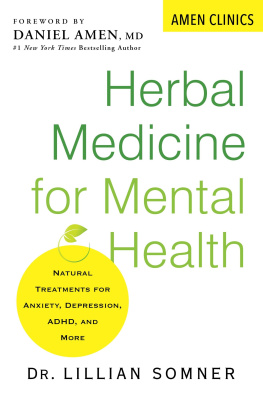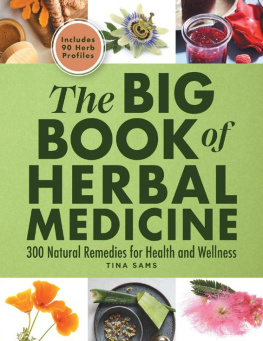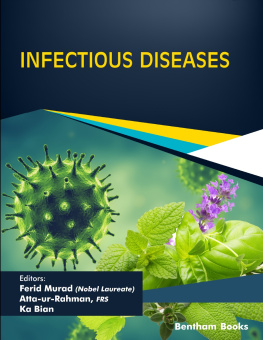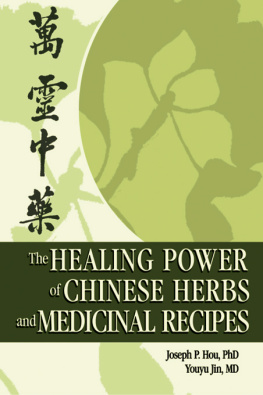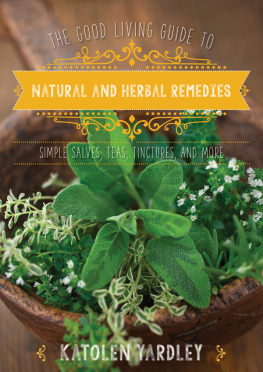Copyright 2011 by John Wiley & Sons, Inc. All rights reserved
Published by John Wiley & Sons, Inc., Hoboken, New Jersey
Published simultaneously in Canada
No part of this publication may be reproduced, stored in a retrieval system, or transmitted in any form or by any means, electronic, mechanical, photocopying, recording, scanning, or otherwise, except as permitted under Section 107 or 108 of the 1976 United States Copyright Act, without either the prior written permission of the Publisher, or authorization through payment of the appropriate per-copy fee to the Copyright Clearance Center, Inc., 222 Rosewood Drive, Danvers, MA 01923, (978) 750-8400, fax (978) 750-4470, or on the web at www.copyright.com . Requests to the Publisher for permission should be addressed to the Permissions Department, JohnWiley & Sons, Inc., 111 River Street, Hoboken, NJ 07030, (201) 748-6011, fax (201) 748-6008, or online at http://www.wiley.com/go/permission .
Limit of Liability/Disclaimer of Warranty: While the publisher and author have used their best efforts in preparing this book, they make no representations or warranties with respect to the accuracy or completeness of the contents of this book and specifically disclaim any implied warranties of merchantability or fitness for a particular purpose. No warranty may be created or extended by sales representatives or written sales materials. The advice and strategies contained herein may not be suitable for your situation. You should consult with a professional where appropriate. Neither the publisher nor author shall be liable for any loss of profit or any other commercial damages, including but not limited to special, incidental, consequential, or other damages.
For general information on our other products and services or for technical support, please contact our Customer Care Department within the United States at (800) 762-2974, outside the United States at (317) 572-3993 or fax (317) 572-4002.
Wiley also publishes its books in a variety of electronic formats. Some content that appears in print may not be available in electronic formats. For more information about Wiley products, visit our web site at www.wiley.com .
Library of Congress Cataloging-in-Publication Data:
Saad, Bashar.
Greco-Arab and Islamic herbal medicine : traditional system, ethics, safety, efficacy, and regulatory issues / by Bashar Saad, Omar Said.
p. ; cm.
Includes bibliographical references.
ISBN 978-0-470-47421-1 (cloth)
1. Medicine, Arab. 2. Medicine, Greek and Roman. 3. HerbsTherapeutic use. 4. Medicinal plants. I. Said, Omar. II. Title.
[DNLM: 1. Phytotherapy. 2. Drug Evaluation. 3. Herbal Medicinehistory. 4. Medicine, Arabic. 5. Plant Preparationspharmacology. 6. Plant
Preparationsstandards. WB 925]
R143.S23 2011
610dc22
2010036842
Foreword
There was a huge enlightenment in the Arab world at a time when Europe was in the grip of the Dark Ages, stifled by Church authority. A major part of this explosion of intellectual freedom was the creation of an entirely new coherent medical system, based on the medicine of the Greeks, the Egyptians, and even of India, that developed into a rational, experimental, and thorough corpus with its theories and treatment protocols, pharmacies, hospitals, libraries, and thousands of new medicines and combinations used for the first time along with differential diagnosis. It became a foundation stone of modern medicine and also of herbal medicine in the West. And it still exists. Arabic medicine today stands alongside Ayurvedic and Chinese medicine as one of the great traditional medical systems of the world and is popularly used in all Muslim countries from Pakistan to Morocco. However, it is relatively unknown and unappreciated as a system in its own right, and today, at a time when natural medicine is a primary source of new therapies and remedies, there is still a great deal to be learnt from it.
This book sets out to reveal the potential of Arabic medicine and especially medicinal plants as a living and vital medical resource today. In this it is quite unique, especially because of its coverage of research on the herbs, and much of it was carried out in the authors' own labs. As far as I am aware, no other professional-level book covers the pharmacology and science of so many important herbs that are widely used in Arabic countries but are still relatively unknown in the West. Take, for example, Nigella (black seed). It is a central herb in Arabic medicine used as a powerful anti-inflammatory and antiseptic. The authors have researched this herb and there are also hundreds of papers, including clinical studies, published on it in the world scientific literature, yet the herb is still unknown and unused in the West except as a spice. This book might well raise its profile worldwide. There has been an assumption in the past that all the herbs of Arabic medicine are already known and used in modern professional herbalism and the health industry. This is not so [1], and this book can be very helpful in introducing a host of novel plants, together with research on them.
Professor Bashar Saad and Dr. Omar Said have written what may well become a classic text on Arabic medicine, not only because of its pharmacological and scientific material, but also because of its interdisciplinary nature. It is a fascinating exploration of the richness of the past knowledge, combined with ethnopharmacology of Arabic medicine today, safety and pharmacology of Arabic medicinal plants, botany, clinical aspects, Arabic medical principles, and so on. The authors are uniquely qualified to write this book, because they themselves embody the interdisciplinary wisdom needed for it. Indeed, they would stand alongside some of the greats of ancient Arabic medicine, who transcended boundaries of subject and discipline. Many times I have walked with the authors over the Galilee hills and listened as they picked out a small hidden herb, identified it, described its Latin, Arabic, English, Hebrew, and ancient names, described its uses and the debates surrounding it in the ancient literature, told me what is in it chemically, described how it performs in the lab and how it should be formulated into a finished remedy, and told stories of, for example, of how the Bedouin of the Negev desert or the Druze of Syria might use it today. The authors are accomplished scientists in the fields of pharmacology, cell biology, and immunology and bring this unique and original aspect of modern science to the herbal wisdom. Besides, the authors are involved in the Galilee Society's botanical garden of medicinal plants, the largest garden devoted to medicinal plants in the Middle East. Thousands of children go there every year and are taught about the traditional medicine of the region. And it should also be mentioned that working and researching on traditional Arabic medicine in Israel and Palestine, regions of conflict, has not been easy.
Today, it is acknowledged that much of modern drug discovery depends on natural product concepts. The first steps are usually the work by ethnopharmacologists in the field and pharmacologists in the lab. This book breaks new ground in opening up a forgotten resource for both drug discovery and new natural product medicines.
Stephen Fulder
Reference
1. Fulder SJ, Said O. Steps towards revival of Graeco-Arabic medicine in the Middle East: a new project. HerbalGram 2009; 83: 3645.
Preface
At the beginning of the twenty-first century and despite the great progress in modern medicine, traditional ArabIslamic medicine continues to be practiced within the Mediterranean as well as most Arab and Islamic countries. A very important factor that has enhanced the present popularity and widespread use of Arab herbal-based medicines is the belief that they are prepared according to the principles of Greco-Arab and Islamic medicine, which was developed during the Golden Age of ArabIslamic civilization. This civilization spanned from the seventh to the fifteenth century and extended from Spain to Central Asia and India. It became a wellspring of brilliant medical developments and innovations, as well as of great achievements in astronomy, mathematics, chemistry, philosophy, and arts. Arab and Muslim scientists significantly contributed to the development of modern Western medicine, accomplishing far more than mere translation. A closer look at their activity during the medieval period shows that they translated classical medical texts not only from Greece, but also from Persia, India, and China. From this, Arab and Muslim scientists were able to synthesize and develop a rich and universal medical system based on scientific methods and experimentation. The works of Arab and Muslim scholars gained widespread use and were used in European medical schools. For instance, the Arab and Muslim physicians Al Tabbari, Rhazes, Al-Zahrawi (Albucasis), Al-Biruni, Avicenna, Ibn al-Haitham, Ibn al Nafees, Ibn Khaldun, and Ibn Zuhr (Avenzoar) are regarded as among the great medical authorities of the ancient world and the medieval world, physicians whose textbooks were used in European universities up to the sixteenth century. They were among the first to make accurate diagnoses of plague, diphtheria, diabetes, gout, cancer, leprosy, rabies, and epilepsy. Avicenna's and Rhazes's works on infectious diseases led to the introduction of quarantine as a means of limiting the spread of these diseases. Arab physicians laid down the principles of clinical investigation and drug trials, as well as animal tests. They mastered operations for hernia and cataracts, filled teeth with gold leaf, and prescribed spectacles for defective eyesight. The physicians and scientists of the Islamic Golden Age, who were of diverse religious and ethnic backgrounds, passed on rules of health, diet, and hygiene that are still largely valid.


